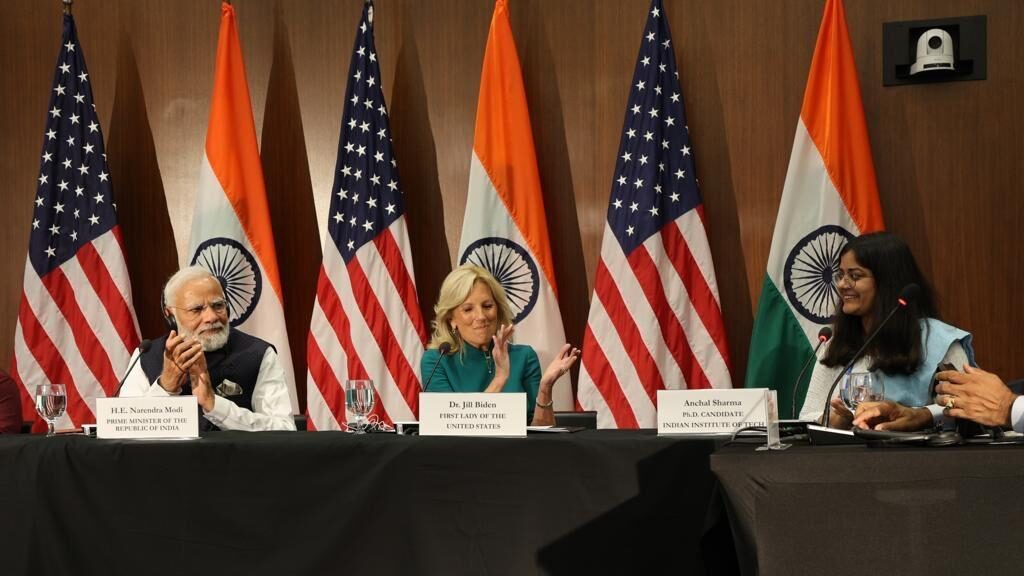
As a visiting researcher at the Massachusetts Institute of Technology (MIT), Fulbright-Nehru Fellow Anchal Sharma is developing computational techniques to assist blind and partially sighted people with shape detection. Someday, Sharma hopes that these techniques will improve inclusion in childhood STEM education.
Last week, she had the unique opportunity to present this research to a distinguished panel of scientists and guests at the National Science Foundation in Alexandria, Virginia, including Indian Prime Minister Narendra Modi and First Lady Dr. Jill Biden, on the first day of the Prime Minister visit to Washington.
“What really uplifted me was the talk being received with so much interest and warmth from the esteemed dignitaries,” Sharma said after the event. “I feel empowered to further hone my scientific and innovative acumen … to solve complex problems like this.”
Sharma’s research is at the intersection of assistive technology and neuroscience. It explores shape perception and how three-dimensional objects can be conveyed using two-dimensional media. Current methods use techniques like 3D printing to create an embossed image on the page, but according to Sharma, “It turns out that it’s really hard for them to explore this and make conceptual sense out of it.”
“This problem of form and shape perception is a challenging one.” Geometric figures and graphs used in science and math education are a particular challenge for blind children, where assistive technology can help them to develop a better cognitive grasp of fundamental concepts. After returning to India, Sharma plans to share the techniques she’s learned at MIT, including computational modelling and neuroimaging, with her colleagues to the further development of assistive education aids like screen readers, speech-to-text, and artificial intelligence tools.
Sharma expressed gratitude to the Fulbright Program and the Embassy of India for the opportunity to share her research with the First Lady and the Prime Minister. She also thanked her research advisor, Dr. Pawan Sinha, peers and mentors at SinhaLab and MIT, as well as her advisor and peers at her home institution the Indian Institute of Technology, Delhi for providing a stimulating environment that allowed her ideas to grow.
Before beginning her research into shape perception, Sharma developed and participated in a range of social innovation projects. She completed a Master of Design in Industrial design from the School of Planning and Architecture in New Delhi and was a product design intern at PepsiCo India. She was acknowledged for her thesis work on integrating cultural spatial forms in a unique product using principles of light and shadows to educate children about unity.